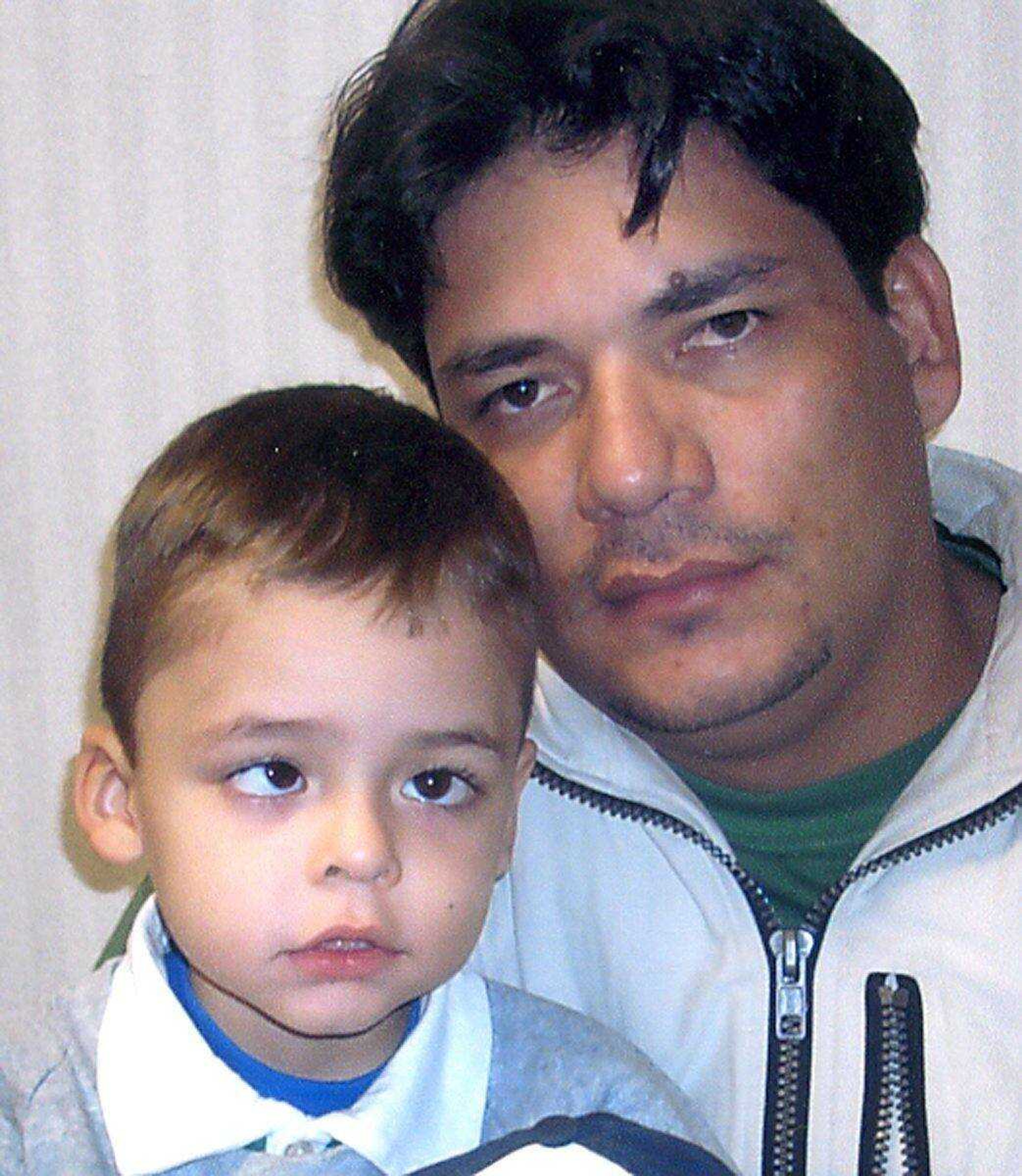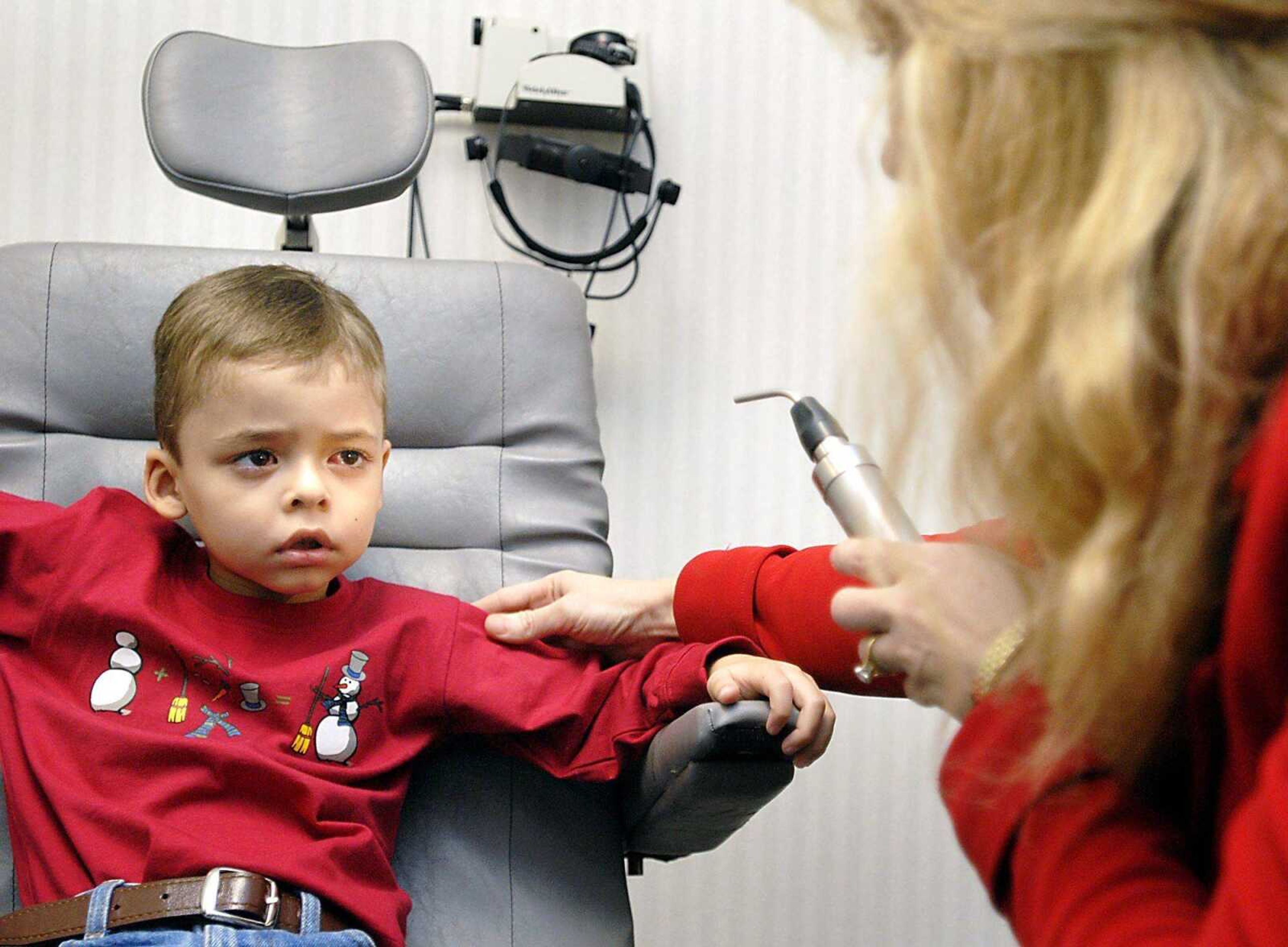4-year-old Nicaraguan boy's eye problem fixed in Cape
Four-year-old Hector Gomez is from Esteli, Nicaragua, where the high temperature Thursday was 80 degrees. In Cape Girardeau the night before, Hector saw snow for the first time. This week he began seeing the whole world in a new way. Hector was born with crossed eyes, a condition called strabismus. ...
Four-year-old Hector Gomez is from Esteli, Nicaragua, where the high temperature Thursday was 80 degrees. In Cape Girardeau the night before, Hector saw snow for the first time. This week he began seeing the whole world in a new way.
Hector was born with crossed eyes, a condition called strabismus. In people with strabismus, one eye looks straight ahead while the other can turn inward, outward, upward or downward. The effects can disappear and reappear, and the misaligned eye and the straight eye can alternate.

Hector couldn't run well and often fell down because the genetic condition sends two images to the brain. He'd learned to ignore the picture from the misaligned eye, giving him a lack of depth perception.
Tuesday, Cape Girardeau pediatric ophthalmologist Dr. Marybeth Kapp operated on Hector's eyes for 45 minutes. After an examination Thursday at her office, she said his vision is now 20/20.
Strabismus occurs in 5 percent of the U.S. population. Though crossed eyes dramatically affect eyesight, many people think of it as a cosmetic problem. "In the U.S. a lot of people still don't get this fixed," Kapp said.
It occurs in larger percentages in countries with less genetic diversity. One of Hector's grandmothers has strabismus.
Depth perception develops through a child's ninth year, Kapp said. If not corrected during childhood the effects can get worse. Kapp compared it to the wheels of a car getting out of balance.
Hector would still have only half his visual field if his father, Eric, hadn't asked a visiting American doctor for help. Hector's family is poor, and few surgeons in Nicaragua have the instruments and training to do this kind of surgery.
Eric knew about Dr. Ramiro Icaza, the Nicaraguan-born U.S. doctor who came to Nicaragua on mission trips. When Icaza was in Nicaragua visiting friends in early December, Eric approached the Jackson general practitioner on the street. He told Icaza about Hector and asked for help. "I knew it was something I had to do for my son," said 37-year-old Eric, who makes his living cleaning.
"Let me see what I can do," Icaza told him. People from Cuba and Venezuela had made similar promises previously. Hector, a preschooler, had kept asking his dad when he was going to get his surgery.
Icaza quickly arranged for Eric and Hector to fly to the U.S., Dr. Kapp agreed to do the surgery for free and Physicians' Alliance Surgery Center offered its facilities and the services of an anesthetist.
The surgery balanced the muscles that support his eyes so Hector can use both of them. Kapp is the only board-certified surgeon doing this operation between St. Louis and Memphis, Tenn., and between Little Rock and Louisville, Ky.
Twenty percent of the people who have the surgery require a second surgery later on, Kapp said. She plans to stay in contact with the Gomezes to make sure Hector's eyesight remains good. In eight weeks his sutures will dissolve, and any trace of his condition will be gone.
He and Eric stayed in the Icazas' home this week. The Icazas' daughter, Jennifer Icaza-Gast, brought Hector toys, and he played with her children. Others have donated clothes for him.
Icaza's wife, Dianne, brought Hector and Eric to their appointment Thursday at Pediatric Eye Care of the Heartland. In their hands were flowers and a thank-you card for Kapp. Dianne Icaza translated for Hector and Eric.
"He told his dad he can see so much better," she said.
Hector and Eric leave for Nicaragua today. Hector's mother and a 2-month-old brother await them.
Dianne Icaza asked Hector what he can see now that he couldn't see before.
"Everything," he said.
sblackwell@semissourian.com
335-6611, extension 137
Connect with the Southeast Missourian Newsroom:
For corrections to this story or other insights for the editor, click here. To submit a letter to the editor, click here. To learn about the Southeast Missourian’s AI Policy, click here.










